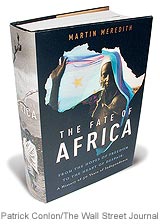
“In downtown New Orleans, where looters are floating garbage cans filled with clothing and jewelry down the street.” From an online slideshow of looting at Wal-Mart and Walgreens in New Orleans. Caption for photo, and photo itself, from: http://www.nbc10.com/slideshow/news/4917518/detail.html?qs=;s=4;p=news;dm=ss;w=400 (POSTED: 9:45 pm EDT August 30, 2005; UPDATED: 10:53 am EDT August 31, 2005; Downloaded Sept. 5, 2005)
Harold Andersen reports on the observations of his wife’s cousin, Michael Ross, a member of the faculty of the history department of Loyola University in New Orleans:
When the levees broke and put the major share of New Orleans under water, a substantial portion of the city was still dry because it was on higher ground, above sea level. Included were the French Quarter, some attractive residential neighborhoods and the land on which Loyola University is located.
There was some wind damage in the higher-ground areas of the city, but those areas were basically preserved and could have served as a base from which the city could be rebuilt.
“But they’re gone now, as a result of looting,” Ross told us.
The looting wasn’t random. Organized street gangs, armed with weapons stolen from looted stores, went about looting quickly and systematically, Ross said. In residential areas, they went down streets kicking in the doors of house after house after house, leaving the residences in shambles.
One unforgettable scene, Ross said, was the telecast showing five pickup trucks of gang members leaving a looted Wal-Mart store with dozens of weapons they had stolen.
Ross is pessimistic about the chances that Loyola and Tulane Universities will reopen this fall, even if their campuses are intact. Students, particularly new students, are most likely to be discouraged from attending school in a nearly destroyed city.
On a personal note, Ross expects that the house in which he has been living will be a victim of looting and his computer files are likely to have been destroyed.
Andersen, Harold W. “If New Orleans is Dead Forever, Looters Delivered the Fatal Blow.” Omaha World-Herald (Sunday, September 4, 2005): 13B. Also online at: http://www.omaha.com/index.php?u_pg=609&u_sid=2006986
New Orleans is the opposite of America, and we must hold onto places that are the opposite of us. New Orleans is not fast or energetic or efficient, not a go-get-’em Calvinist well-ordered city. It’s slow, lazy, sleepy, sweaty, hot, wet, lazy and exotic. (p. 9)
Childress, Mark. “Tribute: What It Means to Miss New Orleans.” New York Times, Section 9 (September 4, 2005): 9 & 11.
OK, so then why is it that all us fast, energetic, efficient, go-get-’em Calvinists are responsible for coughing up billions to save a lifestyle we don’t much get to enjoy?




